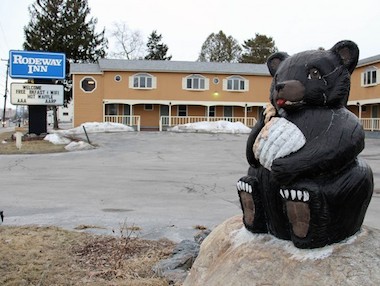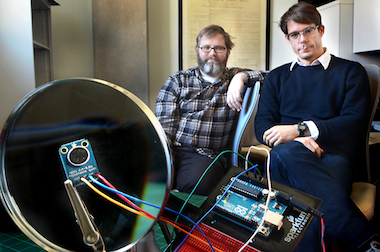Tag: Journalism
Kansas City’s KCPT picks up gauntlet to expand local news coverage
Three years ago, a delegation from Kansas City Public Television, including the board chair, trekked out to San Diego’s KPBS to evaluate ...Nonprofit Marshall Project gears up for putting criminal justice reform on national agenda
The Washington Post had a blockbuster front-page investigation with a lengthy Aug. 3 story about an unreliable witness in a Texas execution case. But ...Documentary series The View From Here attracts national attention with multimedia, audience interaction
A documentary series produced by Capital Public Radio in Sacramento, Calif., focuses solely on issues in the station’s home state yet has ...VPR turns to audience for stories of addiction and recovery
Motel parking lots and other Vermont locations spawned a radio network's search for personal accounts of drug addiction.After criticism, NPR gives freer rein to upcoming ombudsman
NPR has stepped back from plans to curtail its ombudsman’s duties after receiving criticism from journalists and leaders of its member stations. The ...Barriers to newsroom collaborations lower than pubcasters think
“Neither journalism nor public life will move forward until the public actually rethinks and reinterprets what journalism is: not the science or ...Arizona PBS to become ‘teaching hospital’ for ASU’s Cronkite School
The university transfers station operations today from its public-affairs department to its J-school, opening up new possibilities for collaboration.Editor says merger in St. Louis has boosted web traffic, strengthened reporting
The organization resulting from the merger of the St. Louis Beacon and St. Louis Public Radio is already realizing benefits from the ...Winslow of NewsHour sees need for greater investment in public TV’s news programming
The final installment of our interview with Linda Winslow, outgoing executive producer of the PBS NewsHour.Milwaukee pubcasters go deep on problem of imprisonment of black males
A community forum in Milwaukee Tuesday will cap a seven-month reporting project by two of the city's public broadcasters on their county’s ...CPB ombud criticizes KUNM’s handling of plagiarism charges
The handling of plagiarism charges at New Mexico’s KUNM-FM drew criticism from CPB Ombudsman Joel Kaplan, who weighed in on the issue ...WNET will return foundation grant for Pension Peril series
WNET will return a $3.5 million grant it received for a series of reports on public pensions after facing questions about the ...OPB asks WNET for “assurance” that funder didn’t influence Pension Peril
Oregon Public Broadcasting has asked New York’s WNET to demonstrate that no “improper influence” was exerted by the primary funder of its ...Grad student teams up with Missouri’s KBIA to measure decibels in noisy city
The sensor-journalism project will allow for heat maps and other visualizations of noise levels in Columbia, Mo.Knight Foundation, INN partner on $1M innovation fund
The Knight Foundation and the Investigative News Network (INN) are teaming up to award $1 million in microgrants for innovation at public ...





